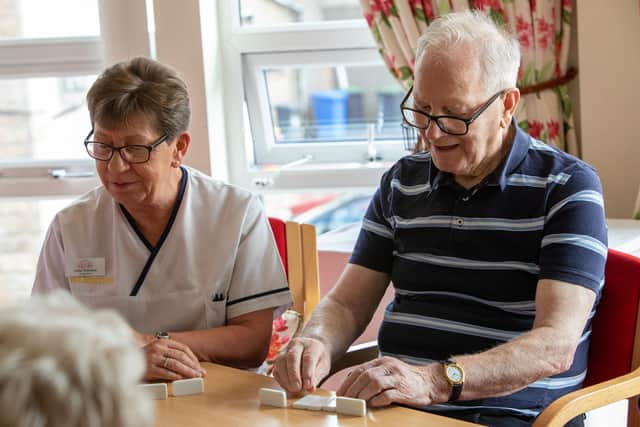Person-centred care is the key to success - Dr Karen Rennie


Now that health boards have governance responsibility of care homes in Scotland, the easy option would be to treat them as a clinical setting, viewing service provision through an NHS lens rather than the lens of social care.
Care homes are not clinical hospitals but are the home of residents and should offer a homely setting that works to avoid hospital admissions. Additionally, for care homes to be places where people want to be, a career in care needs to be seen as a positive choice, and care homes must be viewed positively by their customers – residents and their families – instead of being seen as the last resort for people in need.
Advertisement
Hide AdAdvertisement
Hide AdThe current mood among sector employees is one of resilience but some feel criticised, despite going the extra mile in extraordinary times. To improve the system, it is critical that everyone is involved in creating person-centred cultures which allow people, both living and working within the care homes, to flourish.


Person-centred practice is not just about interaction with service users, it’s about entering into relationships of mutual respect. Unless staff members experience person-centred care themselves, then there is a high chance residents won’t experience it.
The sector is facing well documented struggles with recruitment and staff retention. Commentary on this issue is usually focused on poor levels of pay received by frontline workers, but the system won’t be fixed simply by topping up pay packets. Multidisciplinary teams made up of nurses, care workers, allied health professionals, managers, chaplains and social workers all make an important contribution to the overall success of service provision and management and all staff need a rich learning environment to reach their potential as leaders.
Availability of specialist education for the care home sector is an area of learning that has been sadly neglected in the past. At Queen Margaret University, we have drawn on our own broad range of expertise within the care home sector to provide this development opportunity for a range of professionals (clinical and non-clinical) who wish to advance their own practice and improve the experiences of care home residents, as well as their staff teams. Most importantly, our programme has an underpinning philosophy of personhood and is grounded in the latest research and methodologies to develop practice.
Care homes ownership and management straddles the public and private sectors, and it will take time to change the processes that influence culture to ensure the needs of the person are always front and centre rather than system requirements. Standards in care homes will be driven up by developing clinical and management leadership to create environments where residents and staff experience wellbeing.
Just as important as fair pay, there is long -term value in investing in staff learning and development. This work-based and online learning has a contribution to making working in care homes a positive career choice. Developing staff as person-centred leaders and managers together with enhancing clinical skills will help to achieve the culture needed to create a flourishing care home. Staff retention will improve, employees will be happier and more productive at work and the quality of life for residents will improve.
Dr Karen Rennie, Programme Leader, PGDip Person-centred Practice (Advancing Care Home Practice), Queen Margaret University
Comments
Want to join the conversation? Please or to comment on this article.